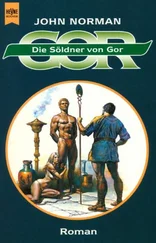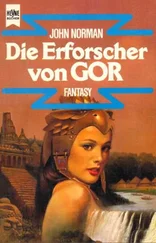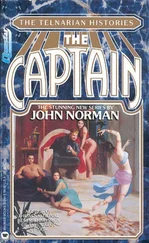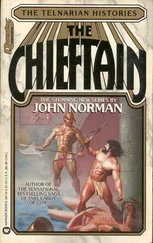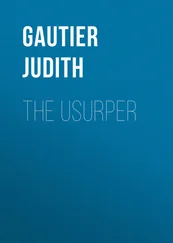“No,” said Corelius, “merely ignorant.”
“But pretty,” said Lysis.
“Like the others,” said Phidias.
“They are lovely things, slaves,” said Lysis.
“True,” said Corelius.
Earlier in the evening Otto, or Ottonius, as those of the empire will often have it, had arrived at the encampment, with several retainers. He had arrived, of course, not then in the skins of Herul dogs but in other skins, and boots, and leg-wrappings, soft, and well-tanned, from the hide of the hroth , a beast indigenous to the forests of northern Tangara, and resembling the arn bear, often encountered in beast fights, in imperial arenas. Now, however, as noted, he was in a dinner robe.
The serving had proceeded apace, with dessert wines, followed by steaming feldis .
Otto removed a cake from the Filene’s tray without glancing at her. A slave is an instrument whose presence need not be noticed.
She would presumably be sent later to his quarters, doubtless to await him, naked, in the furs of his couch.
“I am surprised at the garmenture of the slaves,” said Otto.
“They are slaves,” said Ronisius, which seemed, one supposes, an adequate explanation for the matter in question.
“How is it, Captain, that you are surprised?” asked Lysis.
“This is an imperial camp, even though in the wilderness,” said Otto. “I would have expected serving gowns, as at the captain’s suppers on the Narcona .”
“Do you object?” asked Phidias, captain of the Narcona .
“Certainly not,” said Otto. “I was merely curious, as to why the difference.”
“No free women are present,” said Lysis.
“Nor were they on the Narcona ,” said the barbarian.
“True,” acknowledged Lysis.
“The tunics,” said Otto.
“They are tavern tunics,” said Lysis.
Tavern tunics are designed to display the charms of a slave and arouse the passions of men.
“Yes, or such,” said Otto.
There are many varieties of slave tunics, of course. Some are reasonably discreet, such as those often imposed on women’s serving slaves, those suitable for doing a marketing and running errands, those likely to be worn, if not gowns, in mixed company, and such. Others are less discreet, of which there are many varieties, one such variety being the sort commonly referred to as a tavern tunic, which sort of tunic, of course, is not restricted to taverns, brothels, and such. Tavern tunics are usually of plain, cheap material, usually hevis or cotton; they are seldom of silk, corton , or leel . Some tunics are “work tunics,” “house tunics,” and such, for slaves who are permitted clothing indoors. Different sorts of tunics tend to be favored on various worlds. And, naturally, there are many forms of slave garments which are not tunics, at all, such as the long, scarflike keb .
“I fear that Captain Ottonius may have taken offense,” said Corelius.
“How so?” said Phidias, concerned.
“He may resent, if not the garmenture of the slaves, the fact that it has been arranged so tonight, perhaps suspecting that he is being patronized, being confronted with a condescending concession to the simple tastes and rude manners so often ascribed to individuals of his origin.”
“And what are your origins?” inquired Lysis.
“I do not know my origins,” said Otto. “In the imperial records, I would be regarded as of the low humiliori , even of the peasants. I was raised in a small village, at the foot of the pass leading to the festung of Sim Giadini, on the heights bordering the plains of Barrionuevo. I departed from Tangara. You need not know why. On Terennia, a prisoner, condemned, I was consigned to the gladiatorial school of the landowner, Pulendius. I fought many times. I won my freedom. I became one of the bodyguards of Pulendius. Later, I came to the chieftainship of the Wolfungs, on Varna, and yesterday night, here, I was lifted on the shields of the Otungs.”
“King?” said Phidias.
“Yes,” said Otto.
“The Otungs are understood as barbarians,” said Lysis.
“Surely, as you see them,” said Otto.
“You, too, then,” said Phidias, “as their leader, their chieftain, or king, would be understood as a barbarian.”
“Yes,” said Otto.
“I trust you take no offense,” said Phidias.
“No more, I hope,” said Otto, “than you, when I regard you as citizens of the empire.”
“Citizenship has been granted to almost everyone in the empire now,” said Lysis. “One need only be born.”
It might be noted that at one time citizenship, with its privileges and benefits, except for those of the original, inner worlds, had to be earned, commonly by ten to twenty years of military service. When citizenship became free, so to speak, it ceased to be respected and prized. Recruitments in the military declined sharply, this imperiling borders and worlds. Alternative avenues to citizenship, too, particularly those involving danger or hardship, such as laboring in the civil bureaucracy in remote venues, were also less frequented. In the meantime, migrations of new citizens, of various species, many dispossessed by large-scale economic transitions, in particular, the formation of the great industrial farms manned by slaves, flooded toward major population centers to claim the entitlements of citizenship, such as free food, shelter, clothing, and access to massive entertainments, spectacles and pageants, beast races, arena sports, and such, these wisely provided to distract and pacify idle, restless, dangerous crowds. In the meantime the wealth of the empire, drained from better than a thousand outer worlds, accumulated in the coffers of a smaller and smaller number of individuals, on fewer and fewer worlds, producing a discrepancy between abundance, even luxury, on certain worlds and a desert of scarcity on others. These political and social developments, on various worlds, were exacerbated by the widespread exhaustion of the soil, the diminution of precious and base metals, and the crumbling of infrastructure, such as roads, bridges, aqueducts, and sewerage systems. Predictably, portions of several worlds were afflicted by both famine and disease. In some areas nature reclaimed deserted cities, and dry canals, with inert locks, were filled with wind-blown sand and dust. Dangerous animals prowled in the ruins of towns. There was also, on many worlds, the collapse of a viable tax base, which seems to have been the primary motivation for the imperial binding laws, attempting to hold peasants to the soil, sons to the crafts of their fathers, and such. On many worlds currency was now almost unknown, and exchange was largely in terms of barter. On other worlds the currency was multiplied and debased to the point that it was substantially worthless. On some worlds it was a capital offense not to accept printed paper or stamped wooden blocks for goods. On another world where a darin might once have purchased a thousand arrow points it was now cheaper to melt the darin itself and pour the bright, coarse metal into the appropriate mold. In the meantime, on many worlds, the high honestori , and, in particular, the patrician classes, once the mind, shield, fiber, heart, and sword of the empire, now wealthy, indulgent, and degenerate, were failing to reproduce themselves. “No children are born in golden beds,” had become a saying on several worlds.
“In any event,” said Phidias, captain of the freighter, Narcona , “the garmenture was thought appropriate, not because of your origins, which may be other than ours, or because your tastes might be other than ours, if they are, but because there are men and women and we, as you, are men.”
Читать дальше

